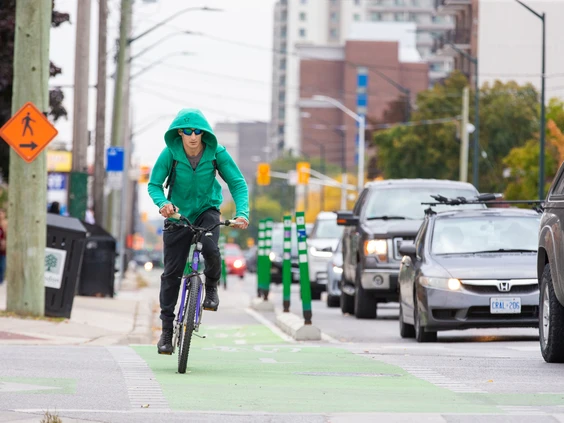Let’s face it: navigating London’s traffic can often feel like an endless battle. With the city’s population projected to grow by 230,000 in the next 15 years, the situation is only going to get worse. No matter how many lanes we add to Wonderland Road, congestion will persist.
But there’s a solution that can ease gridlock and make London more livable—for drivers and everyone else. It starts by making it easier for pedestrians, cyclists, and bus riders to get around.
Why Bike Lanes and Transit Benefit Drivers
You may not be a fan of bike lanes. They can feel like they’re encroaching on your space as a driver. And perhaps you don’t see enough cyclists using them to justify the disruption. But here’s the truth: cities with safe, connected cycle routes see more people choosing to bike. When more people cycle, it takes cars off the road, easing congestion for everyone.
London’s city council recently endorsed a 32.5% mode-share target, meaning that over a third of weekday trips should eventually be completed by walking, cycling, or transit. While ambitious, it’s achievable. Ottawa’s target, for instance, is 50%.
A Vision for a Better City
This isn’t just about more bike lanes; it’s about rethinking how London functions. Prioritizing people over cars creates safer streets, cleaner air, and more accessibility for everyone, regardless of their income or mobility needs.
Imagine a city where your commute isn’t stalled by ever-expanding traffic. Supporting this plan isn’t about eliminating cars—it’s about making London work better for everyone, including drivers.
The Cost of Doing Nothing
Without changes, the alternative is grim: roads packed with more cars and the expense of constant road widening. Taxpayers can’t afford an indefinite expansion of roadways. Supporting the city’s mode-share target is a smarter investment, ensuring London remains a place where everyone can thrive—and yes, where you can still drive.
Andrew McClenaghan is a lifelong Londoner who owns London Bicycle Café and built a successful digital agency.
This piece is based on an article from the London Free Press.
